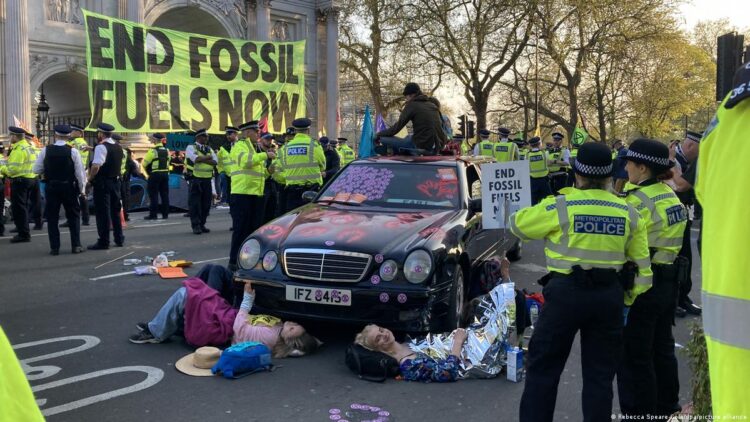By Tony O’Reilly-
The UK government has announced the introduction of Serious Disruption Prevention Orders aimed at tackling disruptive protests, particularly those orchestrated by Extinction Rebellion (XR).
These orders grant police enhanced powers to intervene before protests escalate into serious disruptions, targeting individuals with a history of protest-related offences or court-ignored restrictions.
Under the new orders, individuals can be restricted from specific areas, participating in disruptive activities, or associating with protest groups at designated times. Additionally, the orders can prohibit individuals from using the internet to incite protest-related offences. The court will determine the specific restrictions for each order, which can last up to two years and may be renewed if deemed necessary.
The Home Secretary, James Cleverly, emphasized the government’s commitment to upholding the democratic right to protest while addressing the need to prevent dedicated individuals from causing turmoil.
Breaching a Serious Disruption Prevention Order will be a criminal offence, carrying a maximum penalty of six months in prison and/or an unlimited fine.
These measures are part of the Public Order Act 2023, passed last year, reflecting the government’s crackdown on disruptive protests. Earlier initiatives include banning the use of facemasks to conceal identities, criminalizing climbing on designated war memorials, and prohibiting the possession of flares and pyrotechnics at protests.
The government aims to prevent protestors from exploiting the right to protest to commit criminal offences. These measures come in response to the significant financial and logistical burden placed on police forces, with over 1,000 protests and vigils in the past six months resulting in more than 600 arrests nationwide.
The introduction of Serious Disruption Prevention Orders signifies a new phase in the government’s efforts to balance the right to protest with public safety and order. While critics argue that these measures curtail civil liberties, the Home Office asserts that they are necessary to safeguard everyday life and ensure minimal disruption to essential services.
. The effectiveness and implications of these measures will undoubtedly be closely monitored in the coming months.




